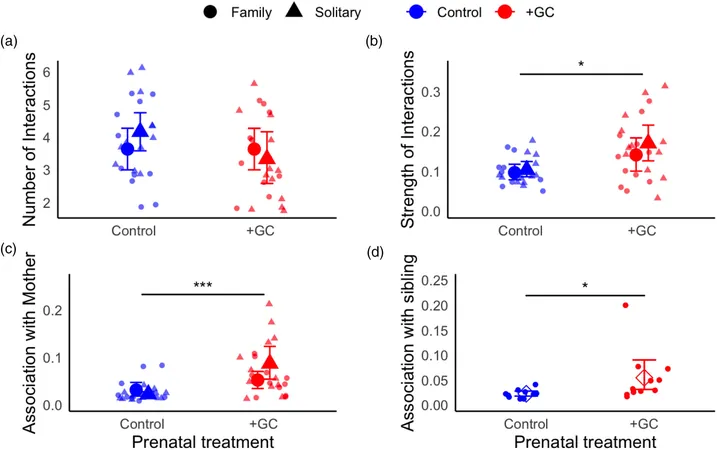
Shocking Discovery: Stressed Lizard Moms Raise Social but Sluggish Offspring!
2025-09-16
Author: Daniel
Motherly Stress and Its Unexpected Effects
In a groundbreaking study led by Dr. Kirsty Macleod at Bangor University's School of Environmental and Natural Sciences, researchers have unveiled a stunning link between maternal stress and the development of baby lizards. The findings, published in the Journal of Animal Ecology, challenge traditional beliefs about how stress influences offspring growth and behavior.
Social Lizards on the Slow Track
The research focused on Liopholis whitii, a species of Australian lizard known for their tight-knit family groups. Surprisingly, the stressed-out mothers produced young lizards that were notably more sociable, often spending more time interacting with their siblings and mothers. However, this social inclination came at a cost—the babies grew at a much slower rate.
Are Maternal Bonds Enough?
Unlike many animals, including humans, the study found that close contact with their mothers did not mitigate the effects of prenatal stress on these baby lizards. This finding questions the commonly held belief that parental support can buffer the adverse impacts of early life stress.
A Game-Changer for Understanding Animal Behavior
Conducted by simulating stress through hormonal treatments given to pregnant lizards, this research reveals that maternal stress could reshape the social dynamics of lizard populations. The implications are profound, potentially altering our understanding of how social groups form not only in lizards but across various species.
Expert Insights: A New Perspective on Stress and Socialization
Dr. Macleod emphasized the significance of her findings, stating, "Stress during pregnancy can shape not only how offspring develop but also how they engage with their social world. While some animals benefit from a comforting social environment post-birth, our study indicates the complexities of simpler behavioral interactions that remain to be explored. This research opens new avenues in the quest to understand the intricate web of parental influence on animal behavior."


 Brasil (PT)
Brasil (PT)
 Canada (EN)
Canada (EN)
 Chile (ES)
Chile (ES)
 Česko (CS)
Česko (CS)
 대한민국 (KO)
대한민국 (KO)
 España (ES)
España (ES)
 France (FR)
France (FR)
 Hong Kong (EN)
Hong Kong (EN)
 Italia (IT)
Italia (IT)
 日本 (JA)
日本 (JA)
 Magyarország (HU)
Magyarország (HU)
 Norge (NO)
Norge (NO)
 Polska (PL)
Polska (PL)
 Schweiz (DE)
Schweiz (DE)
 Singapore (EN)
Singapore (EN)
 Sverige (SV)
Sverige (SV)
 Suomi (FI)
Suomi (FI)
 Türkiye (TR)
Türkiye (TR)
 الإمارات العربية المتحدة (AR)
الإمارات العربية المتحدة (AR)